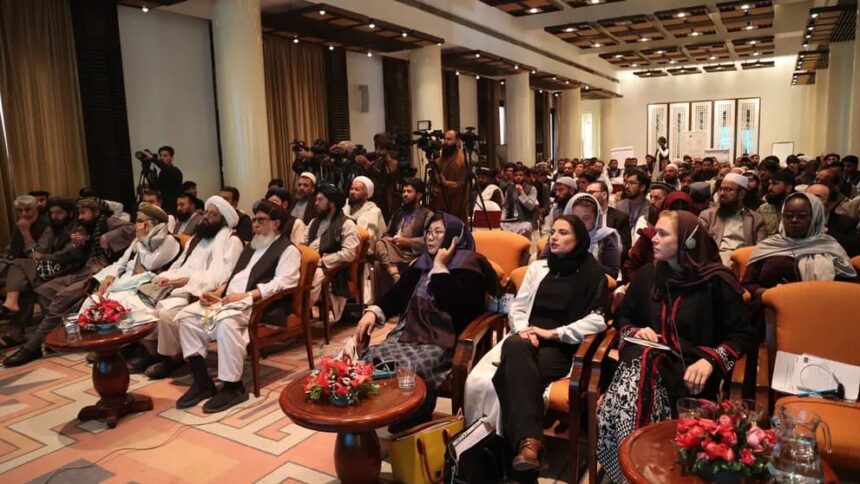RASC News Agency: Despite the Taliban barring Afghanistani women from participating in public life, foreign female representatives continue to attend the group’s discussions in Kabul. Recently, the head of UNAMA, along with other foreign women, was present at a Taliban-led conference on the impact of climate change in Afghanistan. The Taliban’s Ministry for the Propagation of Virtue and the Prevention of Vice enforces restrictions that confine women to their homes, deeming their voices in public settings as inappropriate.
On Wednesday, the UN’s special envoy to Afghanistan, alongside several female diplomats, participated in a meeting with senior Taliban officials in Kabul, focusing on environmental concerns. Key figures included Roza Otunbayeva, head of UNAMA, as well as female representatives from the European Union and other global organizations. However, Taliban-controlled national television selectively aired footage of the meeting, omitting the segment showing the female UN officials and diplomats. Although statements from these women were broadcasted, their faces were deliberately not shown, adhering to the Taliban’s policy against displaying women in public media.
This censorship is not an isolated occurrence. Despite the involvement of female representatives from international organizations, Afghanistani women remain completely marginalized from public life under Taliban rule. The UN representative underscored Afghanistan’s vulnerability to climate change, asserting, “Considering the country’s extreme susceptibility, we cannot afford another year without Afghanistan’s voice in this vital global dialogue on climate change.” Each year, the United Nations hosts major summits to address climate change, focusing on policies and strategies to mitigate this global crisis. Afghanistan has been absent from these global forums for the past three years.
Simultaneously, Mawlawi Mati-ul Haq Khalis, head of Afghanistan’s National Environmental Protection Agency, urged the international community to revive 32 suspended environmental projects worth over $800 million. Afghanistan, one of the countries most affected by climate change, faces recurring natural disasters, such as devastating floods and worsening droughts. This disparity between international women’s involvement and the total exclusion of Afghanistani women exposes the deepening divide in rights and representation under Taliban rule.






